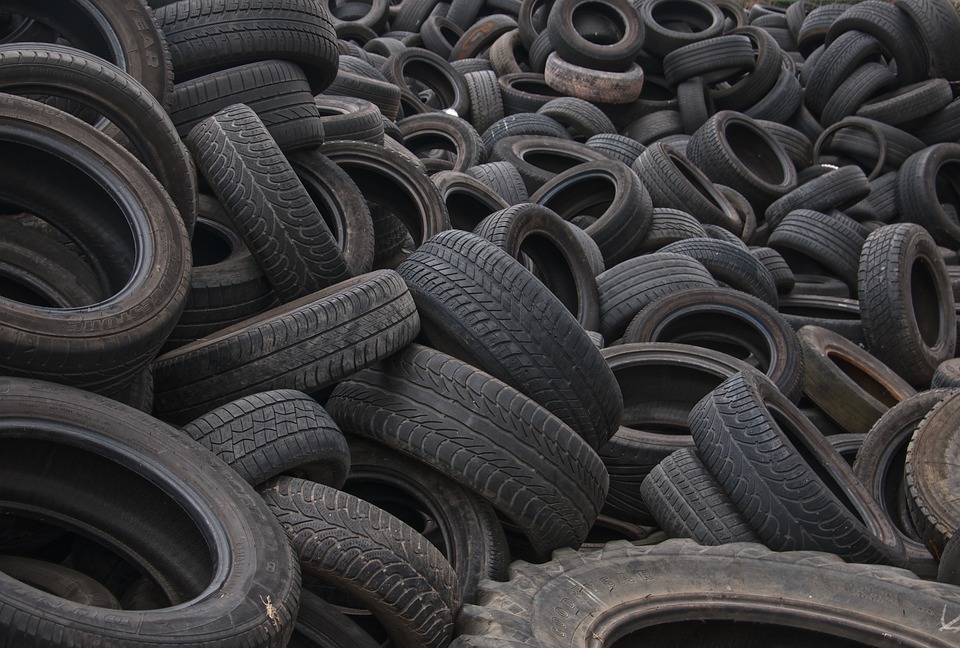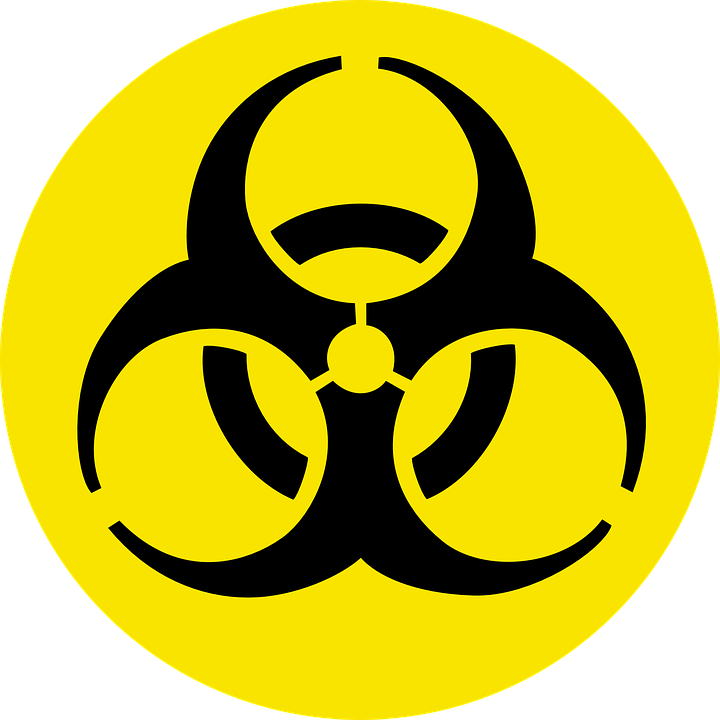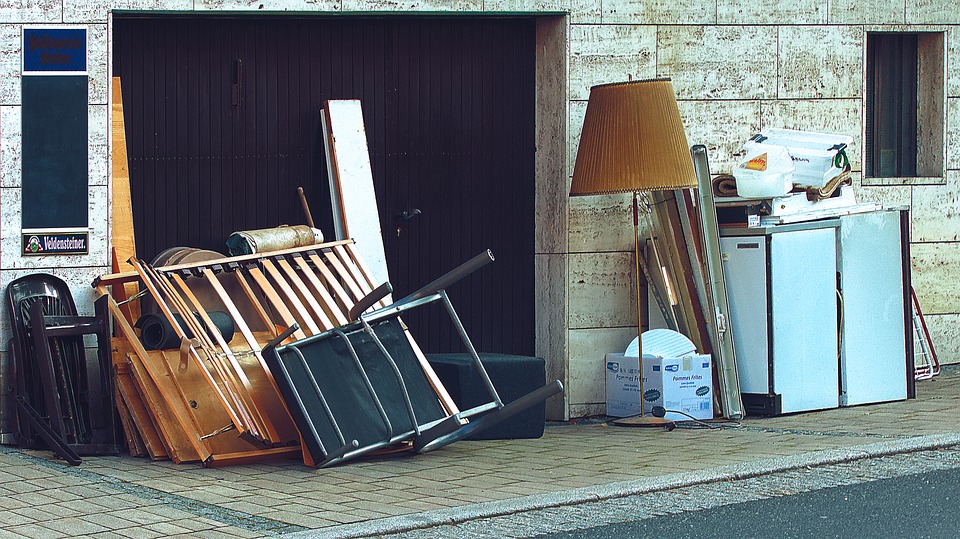Do you need a dumpster to remove unwanted furniture and other household items? Dumpster rental companies are governed by strict regulations about what can be discarded in their dumpsters. If you are unsure about what goes into your dumpster, then keep reading to find out more:
Furniture and Household Items You Can Discard in a Dumpster
You can dispose of any non-hazardous waste or junk in a dumpster. These include:
Alkaline Batteries
You may recall that there were mandates to recycle single-use batteries for several years. This was because alkaline batteries contained mercury (which had a toxic impact on the environment) until the mid-1990s. However, alkaline batteries now fall within the federal and state regulations for household hazardous waste disposal.
For every state (except California), regular batteries (such as AAA, AA, C, D, button cell, and 9 Volt) can go into the dumpster. You can also choose to recycle old batteries by taking them to your municipality’s recycling center. Can’t figure out where all the recycling facilities are located? You can use Earth911’s Recycling Search to find them.
Construction and Home Improvement Debris
You can discard almost all construction waste in a dumpster. These materials include:
- Asphalt
- Bathroom fixtures
- Bricks
- Cabinetry
- Concrete
- Countertops
- Drywall
- Flooring
- Lumber and wooden materials
- Siding
- Stone
- Subfloor materials
- Tiles
Note: If your materials are hefty, you may need to rent a reinforced dumpster.
Drained Appliances
You can discard many appliances (such as washers, dryers, and AC units) in a dumpster. However, there is one vital caveat: all hazardous fluids and components must first be drained. If you want to discard without draining, you will need a professional. The same rule applies to disposing of refrigerators. You will need to completely drain them of freon before throwing them in a dumpster. Therefore, you may find it easier to pay for them to be professionally discarded.
Electronics
You can dispose of your household electronics in a dumpster. But if you are cleaning out an office (or have a huge volume of electronics to discard), you will probably need to recycle them as e-waste.
Empty Aerosol Cans
Aerosol cans (such as hairspray, non-stick cooking spray, etc.) are safe to discard in a dumpster – as long as they are empty. Please note that if an aerosol can is even partially full, it is prone to exploding.
Household Junk
You can place any non-hazardous household items in a dumpster. The EPA defines household hazardous waste as anything that “can catch fire, react, or explode under certain circumstances, or that are corrosive or toxic.”
Some examples of non-hazardous household waste include regular trash, furniture, yard materials such as shingles or siding, construction debris, and most appliances. If you are unsure whether an item is hazardous, please check the EPA’s household hazardous waste page.
Wooden Furniture
Another item you can place in a dumpster is wooden furniture. This category includes wooden chairs, tables, shelves, cabinets, and other items made entirely of wood. These are all safe to discard in the landfill. However, if the furniture is upholstered (such as armchairs, couches, etc.), they are subject to different rules that vary across cities.
Yard Waste
Natural items such as sticks, leaves, brush, storm-related and other debris are OK to discard in a dumpster.
What Items Should You Not Discard in a Dumpster?

You need to understand what should not go into a dumpster. Many of these items are dangerous, while others can lead to an improper waste disposal fee from your government or dumpster rental company.
Here is the list of items to not throw in a dumpster:
Adhesives
Adhesives such as glue and epoxy are not allowed in dumpsters. They can bind other materials to the dumpster’s walls.
Asbestos
If your home contains asbestos, then many other household waste items (renovation debris, roof tiling, etc.) that generally go in a dumpster are not allowed. These are all considered contaminated materials, and you will need to hire a licensed asbestos removal contractor to remove and dispose of all waste.
Hazardous Materials
Leave all hazardous materials disposal to the professional hazardous waste collectors. These materials also include common household substances such as pesticides, motor oil, automotive fluids, freon, asbestos, etc.
Contaminated Soils and Absorbents
Since hazardous materials are not allowed in a dumpster, anything contaminated with such materials (including soil and mulch) should also not be placed in the dumpster.
Household Cleaning
Although you can recycle empty cleaning supply bottles, you should not toss these solutions inside a dumpster.
If you need to discard household cleaning fluids, first check the labels for specific disposal instructions. If none are given, then the American Cleaning Institute suggests that you consider the function of the chemical to see how best to discard it. For example, laundry or dish detergent normally drains into the plumbing after use, so it is safe to pour them down the drain along with running water.
Hot Water Tanks
Hot water tanks do not belong in the dumpster. Why? The space inside the tank can collect dangerous gases and could explode.
If you need to get rid of a hot water tank, you will likely get a replacement. Contact the hot water company to see if you can have the delivery person pick up the old heater while dropping off your new unit.
If that’s not possible, you can also contact a professional junk hauler or your local waste management facility to inquire about the curbside pickup of your old water tank.
Inks and Resins
If you dispose of your old printer ink, pen ink, and resins in a dumpster, it can stain anything it comes into contact with, including the dumpster and the landfill equipment. Therefore, you should not discard them in the dumpster. We recommend visiting your office supply stores to drop off your unwanted items at their designated recycling center.
Medical Infectious Waste
Medical infectious waste is any material used in medicine or that comes in contact with bodily fluids. These include:
- Animal carcasses or body parts
- Dialysis waste
- Hospital blood bags
- Human blood
- Blood-soaked fabrics
- Unused or expired drugs and prescriptions
- Unused needles and sharps
Most medical household waste (such as bandages or tools used to treat injuries not requiring a doctor’s care) is not deemed medical infectious waste. This category is most relevant for doctor’s offices and medical laboratories – not homes.
Non-Alkaline Batteries
Unlike household batteries that fall within federal standards for household hazardous waste, many other battery types are toxic. Therefore, they should never go into a dumpster. Some of these batteries that you should never place in a dumpster include:
- Car batteries
- Lead-acid batteries
- Computer batteries
- Lithium-ion batteries
- Rechargeable batteries
- Silver oxide batteries
Oils, Fuels, and Propane Tanks
Anything flammable such as propane tanks, gasoline, oil, or other fuel, should never make its way into a dumpster. Improper disposal of highly flammable materials is a severe safety risk and is even illegal in most states. Don’t hesitate to contact your local fire department or hazardous waste collector to learn how to dispose of flammable materials correctly.
Paints and Lacquers
Any paint, lacquer, paint thinner, and wood stain are never allowed in dumpsters. It’s not just about the stains, as these items also contain lead or mercury. However, empty paint cans are permitted, and dry latex paint (if it is wrapped in a plastic bag). You can also recycle dried paint cans with other metals in your regular recycling bin.
Undrained Appliances
As we stated before, you can only place fully drained household appliances in a dumpster. You can’t place a refrigerator in a dumpster unless it’s completely drained of the refrigerant. Although refrigerators are not toxic, we can’t say the same for freon. The penalty for releasing freon into the environment begins at $25,000.
Although it’s possible to drain freon from your refrigerator, most people choose to contact their local waste management authority or private waste removal company. If you contact them, they will schedule a professional pickup.
Whole Tires

Whole tires are not allowed in landfills since their hollow spaces can trap methane gasses when buried by other garbage. Methane is powerful enough to cause an entire tire to rise to the landfill’s surface, push aside other debris, and potentially damage its protective liner that keeps the landfill from polluting the environment.
How do you get rid of a tire (or two)? You can take them to an auto parts store or a local recycler who will convert them into rubber mulch.
Items That May be Allowed in a Dumpster
In some cases, what may or may not go into a dumpster differs depending on the local laws and regulations. We recommend that you contact your community’s government office or waste management company for these items.
Dirt
Some places allow dirt disposal in dumpsters, but other areas may have regulations that govern such removals. You can also rent designated dirt-only dumpsters that make loading and unloading of dirt and rocks much easier.
Please call your local waste management office to discover how to handle dirt disposal in your area. Some communities even have free dirt hauling!
Event Waste
Food waste and household garbage are often placed in the residential garbage can and not a dumpster. But events generally lead to “domestic” waste being thrown in the dumpster. You can throw small quantities of food waste into a dumpster without any penalty in many areas. You should note that some towns prohibit food waste in dumpsters, so always check your local waste disposal regulations before hosting an event.
Box Springs and Mattresses
In general, box springs and mattresses are not allowed in dumpsters. Why? This type of waste generally consists of steel, wood, and cotton – all recyclable materials. Therefore, placing them in landfills represents a wasted opportunity for greater sustainability.
If you want to dispose of a mattress or a box spring, do some online research. Discover how to disassemble these items and strip the recyclable parts away from the mattress waste.
Tree Stumps
The majority of yard waste can often be discarded in a dumpster. However, there are special rules about the size and type of waste. Some locations may charge an extra fee per tree stump.
Upholstered Furniture
In many cases, wooden furniture is allowed in dumpsters. However, some communities allow you to discard upholstered furniture with regular waste – often for an extra fee.
Learn Why You Should Not Discard Some Items in Dumpsters
Let’s talk about why you shouldn’t place some materials in the dumpster:
Hazard Risk

Hazardous items are not permitted in the dumpster. The US Environmental Protection Agency (EPA) keeps a comprehensive list of hazardous materials, and none should go into a dumpster or go to a nonspecialized landfill.
Items containing heavy metals like electronic devices or harsh chemicals (including household cleaners or herbicides) are not allowed in dumpsters. Hazardous substances can leach past the soil and into the groundwater, contaminating the local water supply. This potentially kills aquatic life in waterways and makes water unsafe to drink.
Pollutants that leach from objects in landfills also move from the soil and water into nearby vegetation. From that point, they go through the food chain where local wildlife species eat contaminated plants. When harmful chemicals enter the ecosystem, they lead to several issues such as habitat destruction, poisoning of local wildlife, and the sickening of humans who consume polluted water or contaminated animal meat.
One solution to these issues is to discard hazardous materials only in specially lined landfills. But these landfills are limited and don’t completely protect the environment. Therefore, disposing of hazardous chemicals is a challenging and expensive process, and many dumpster companies will not accept such materials.
Bulky Items
Household items can be difficult to discard even when they are not harmful to the environment. Landfill space is often limited, and municipalities want to minimize overfilling and pollution. Too many bulky items leave no room for regular household waste. Such waste can quickly become unsanitary and unsightly if there are no designated spaces for different types of garbage.
Many landfills refuse to accept oversized items such as furniture or large appliances. These restrictions can also make some dumpster companies reluctant to accept them. Even if a dumpster company takes your oversized item, they will likely charge high fees to dispose of these cumbersome items.
Recyclable Items
Recyclable items are not allowed in dumpsters or landfills. Recycling is a critical aspect of sustainability, so always choose to recycle as much as possible.
For example, you can send rubber tires to a recycling center to make rubber mulch and other rubber products. Also, many tire and auto shops may dispose of old tires for a small charge.
Furthermore, you can recycle valuable metals in consumer electronics. These metals can be melted down or reused in new electronics. Some furniture materials are also recyclable. Therefore, it is best to find a safe way to recycle these products instead of throwing them into a dumpster.
What Should You Do With Items Not Allowed in a Dumpster?
You can:
- Donate electronics like TVs and appliances to charitable organizations such as Goodwill or Habitat for Humanity
- Find a donation site to recycle your old phones, computers, printers, tablets, etc.
- Dispose of engine oil at the appropriate recycling facility
- Visit auto parts stores, mechanic shops, and dealers to recycle old car batteries (some may offer extra payment if you have bought the batteries from them)
- Recycle old tires at tire stores or even offer them on sites like Craigslist to craftspeople or other hobbyists
Frequently Asked Questions (FAQs)

Here are the answers to some of our frequently asked questions:
Q: Can I throw my tires in a dumpster?
Many landfills don’t accept tires, and placing a tire in a dumpster can lead to a monetary fine. Most tire dealers and auto parts stores will take your unwanted tires.
Q: Can I place a TV in a dumpster?
We don’t recommend that you place electronic waste in a dumpster. It’s best to keep them out of landfills to avoid any toxic materials leaching from them into the ground. If you have many electronics, you will need to recycle them as e-waste.
Q: Can I dispose of a mattress in a dumpster?
It all depends on your area. Some locations allow mattresses in landfills, while others prohibit mattresses and levy fines for incorrect disposal.
Hire a Dumpster Wagon Today!
Are you moving or simply redecorating? Choose Dumpster Wagon for safe and convenient waste disposal. We are among the top dumpster rental companies, so trust us to help you haul away your unwanted items at an affordable price. Contact us today to discuss how we can best meet your needs.


Recent Comments